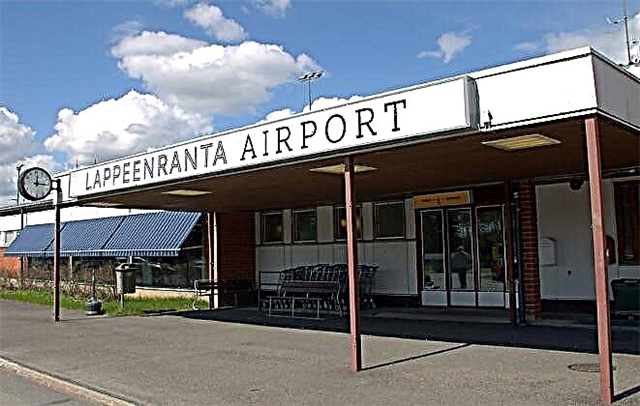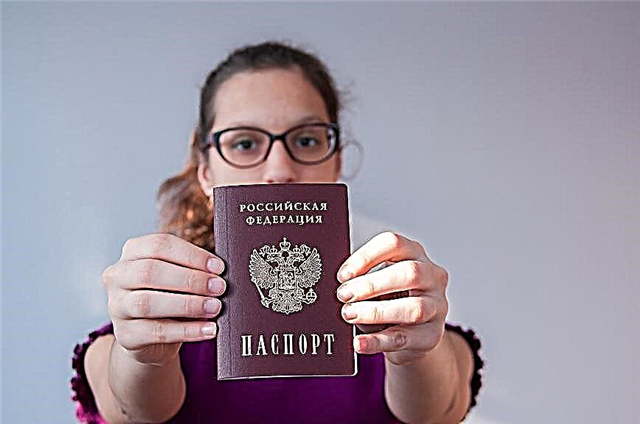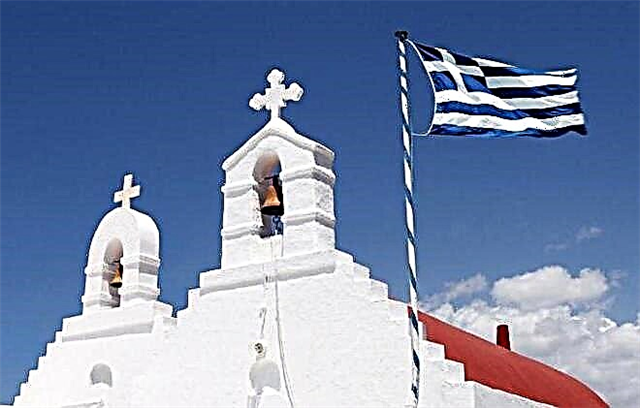The state religion in Greece is Orthodoxy. It is practiced by about 98% of the country's population. According to the constitution, all citizens have the right to freedom of choice of religion, however, the propaganda of other religious denominations in the country is prohibited. This should be taken into account by every traveler so as not to offend the faith of the local population.

The origin of Orthodoxy in Greece
Christianity in Greece began to spread from the middle of the 1st century AD thanks to the efforts of the Apostle Paul. He arrived at the Macedonian harbor of Naples, and then went to the territory of the neighboring town of Philippi. From there he embarked on a journey of Christian preaching. On the day Saint Paul first addressed the people of Philip, one of the wealthy townspeople named Lydia was baptized and inclined all her family members to him. It was Lydia who became the first Christian woman in Greece.
The history of Greek beliefs indicates that by the beginning of the 2nd century, Christian communities already existed in Athens, Thessaloniki, Corinth, Achaia, and other large cities. By this time, in the Hellenic lands, together with Paul, the apostles Luke, John the Theologian, Andrew the First-Called, Procopius, Barnabas and Mark were reading sermons.
For about 300 years, Christians in Greece were persecuted. Only with the deepening at the beginning of the 4th century of the split of the Holy Roman Empire, which included the Hellenic lands, did the prerequisites for the establishment of the Christian faith within them arise.
The question naturally arises about the years when Greece adopted Christianity. The conditions for this began to take shape during the reign of Constantine the Great (306-337). According to legend, an image of a cross appeared in the sky in the sky to the emperor, setting off for battle in 312, and the words "Conquer by this" were heard. Constantine defeated Maxentius in battle, and the following year - over Licinius, and became the sole ruler of the Roman Empire.
The emperor believed that his success was due to the intercession of the Christian God. Therefore, in 313, he issued the Edict of Tolerance (Edict of Milan), which protected Christians from persecution. In 330, Constantine the Great moved the capital of the empire from Rome to Constantinople and declared that pagan cults would never again be practiced on the territory of this city.
In 380, during the reign of Emperor Theodosius, Christianity was proclaimed the religion of the Byzantine Empire. Thus, this belief became dominant in the Hellenic lands, which were then part of Byzantium.
The way Orthodoxy was established in Greece is difficult. So, by the 8th century, religious disputes between the Patriarch of Constantinople and the Pope of Rome intensified. They concerned the priests' right to marriage, the peculiarities of fasting, the wording of prayers, the language of worship and other aspects. The result of these contradictions was the split of Christianity in 1054 (the Great Church Schism) into Orthodoxy and Catholicism. The first became the dominant religion in the east of the Byzantine Empire, which included the Greek lands, the second - in the West (centered in Rome).
As an official religion in Greece, Orthodox Christianity has existed since June 11, 1975. On this day, the constitution of the modern republic was adopted, on the pages of which Orthodoxy was enshrined as a state faith.
What religious holidays are celebrated in Greece
Greeks are considered a devout nation. Church holidays are among the most revered for the citizens of the country. On December 25, it is customary in Greece to celebrate the Nativity of Christ. Everywhere people decorate Christmas trees, godparents accompany godchildren to church services. Traditionally, festive tables are set, where the main dishes are pork with celery and turkey.
Greek Orthodoxy also implies the celebration of the Epiphany, which falls on January 6. The population gathers for the liturgy, after which the water is blessed. According to tradition, the priest throws a cross into the river, and the men jump into the reservoir after him. Whoever finds the shrine will be recognized as the hero of the holiday.
Fasting lasts until mid-February in Greece. And then Apocries begins - an analogue of the Russian Maslenitsa.
Great religious holidays in Greece include Easter. It is celebrated in April-May. This is a family celebration that is celebrated in different ways in different regions of the country. For example:
- on the island of Santorini in the village of Pyrgos, local residents arrange a colorful procession;
- on the island of Corfu, the population throws painted clay pots out of the windows as a sign of deliverance from sins and troubles;
- on the island of Hydra, people carry out the rite of burning a scarecrow of Judas.
The Dormition of the Theotokos is celebrated on August 15 in Greece. On this day, girls burn wreaths woven into the holiday of labor and flowers - May 1. It is generally accepted that this helps every woman to maintain the purity of her soul.
On September 8, Greeks celebrate the Nativity of the Mother of God. The Orthodox faith in Greece orders all believers to visit the church that day. In addition, thousands of childless women from all over the world come to the Tsamya (Tsamya) monastery located on the island of Rhodes for the holiday. They, climbing up almost 1,500 m on knees and elbows, ask God to send them little ones.

In mid-September, the Greeks celebrate the Exaltation of the Cross. It completes the annual cycle of great church holidays.
Holy places of Greece
Greece is rightfully considered the stronghold of Orthodoxy, and the pilgrimage to the Greek holy places does not lose its relevance. Both true believers who want to worship Christian relics and art connoisseurs who want to see the greatest masterpieces of architecture with their own eyes strive to visit monasteries and Orthodox churches in Greece.
Famous pilgrimage centers
Among the holy places of Greece, to which tens of thousands of travelers and Orthodox believers flock every year, the following are especially popular:
- Holy Mount Athos on the island of Halkidiki. There is a monastic republic with a male population, which is the only one of its kind. Today, there are about 20 active monasteries on Athos.
- Monastery of St. John the Evangelist in Suroti. It is also known as "female Athos". The venerable elder Paisiy Svyatorets, the founder of the monastery, deeply revered by all Orthodox Christians, is buried here.
- The white marble Cathedral of St. Andrew the First-Called in the city of Patras. The building houses the Honorable Head of the Apostle and the remains of the cross on which he was crucified. There is a holy spring near the temple.
- Parthenon in Athens. Originally built as a pagan shrine, in the 5th century AD it turned into an Orthodox church of Holy Wisdom. Later it was named in honor of the Most Holy Theotokos. But in the XIII century, representatives of the Catholic Church established their protectorate over the Parthenon and renamed it North Dame d'Aten.
- Thessaloniki. In this city, there is the Metropolitan Cathedral, which houses the relics of one of the great church fathers - Gregory Palamas. Also in Thessaloniki is the basilica of the patron saint of warriors - the great martyr Demetrius of Thessaloniki.
- Crete. The Main Apostolic Cathedral of the island houses the Honorable Head of the Apostle Titus, a disciple of St. Paul, who founded 9 Orthodox dioceses. Pilgrimage tours to Crete are also organized for those wishing to visit the Panagia Paliani monastery. Within its walls there is an icon of the Mother of God, on which it began to sprout and take root, hiding with branches the face of the Mother of God, a painted tree.
- Patmos. This is the island where God's revelation appeared to John the Theologian. There are over 50 Orthodox monasteries and churches here.
This is not a complete list of the holy places in Greece.Pilgrims will certainly be interested in the Pantokrator Almighty convent on the island of Corfu, the monastery buildings in Meteora, the Golsky monastery in Sparta, the Filerim monastery on the island of Rhodes and many other shrines.
Are there any differences between Greek and Russian Orthodoxy
Greek and Russian Orthodoxy are two branches of the same religion. There is no difference between the dogmas and canons, which cannot be said about church life, rituals, and the order of worship. Let's take a closer look at how the Greek Orthodox Church differs from the Russian one:
- In Greece, the church, unlike Russia, is endowed with state status. She works closely with public structures. Until now, the traditions of the Greek church courts have not been lost.
- The requirements for Greek clergy are stricter than for Russians. Thus, Greek Orthodoxy excludes the ordination of a person who has entered into a premarital relationship, who has entered into a second marriage or is divorced.
- Siesta lasts from 13.00 to 17.00 in Greece. It is not customary to come to church at this time. Parishioners are expected for Vespers from 17.00 or 18.00. In Russia, the doors of the church are always open.
- In Greek churches, unlike in Russian, they do not put candles in front of icons. Candles are located next to the hoods in the porches.
- There are differences in the church hierarchy. If in the Russian Orthodox Church the metropolitan is higher than the archbishop, in the Greek it is the other way around.
- The peculiarities of religion in Greece provide that it is necessary to take communion every Sunday, and to confess - several times a year. Parishioners of the Russian Orthodox Church come to communion less often.
- The rite of worship in a Greek church is much more democratic and simpler than in a Russian one.
- The duration of the liturgy in the Greek Orthodox Church often does not exceed 1.5 hours. In Russian, on the other hand, the service can last more than 3 hours.
- The first part of the liturgy (proxomidia) in a Greek church is held on one prosphora (liturgical bread), and in Russian - on 5.
- Unlike Russia, there are no women in church choirs in Greece.
Also, Greek priests have slightly different clothes: the robe does not have a neck elevation, and the kamilavka has a rim on top. In addition, the clergy of the Russian Orthodox Church always - even outside the church - wear crosses over their robes. Greek priests wear crosses only before bishop services.

Russian Orthodox churches in Greece
The Russian-speaking Orthodox community in Greece has its own official parishes and churches. Among the most famous are:
- Trinity Church (Athens);
- Church of St. Seraphim of Sarov (Piraeus);
- Church of St. Olga Equal to the Apostles (Piraeus);
- Church of St. Mary Magdalene Equal to the Apostles (Chania);
- Church of St. Nicholas the Wonderworker and St. Great Martyr Demetrius of Thessaloniki.
The Orthodox Russian Church in Greece tries to maintain the traditions that exist in the Russian Orthodox world.
Other religious trends
Among other currents of Christianity, Catholicism and Protestantism are represented on the territory of Greece. About 200,000 Greeks are adherents of the Catholic Church, up to 40,000 are Protestant. This is approximately what the religious composition of the followers of Christianity in the country looks like. Another 5,000 believers are members of Jewish communities.
Since the 15th century, the territory of modern Greece has been one of the centers of confrontation between the Christian and Islamic worlds, since until 1829 the Greek lands were part of the Ottoman Empire. Since that time and until now, the Islamic factor has played an important role in the social and political life of the state.
There are over 250,000 Muslims in the country. The area of their compact residence is Western Thrace. Every third inhabitant here is a Muslim.
Neopaganism is becoming popular in Greece. There are several tens of thousands of Greeks in the state who worship the old gods, headed by Zeus. In recent decades, neo-pagan churches have been erected in the country. Their parishioners seek the approval of an official legal status, arguing that paganism is an essential part of the cultural heritage of Greece.
Instead of an afterword
Modern Greece is a country in which religious traditions are harmoniously woven into the daily life of society. The answer to the question of which religion is considered official among the Greeks is Orthodoxy.
Every Greek family tries to strictly observe church customs, to honor the great Christian holidays. In addition to Orthodox believers, there are many Catholics, Protestants, Judaists, Muslims in the state. Neopaganism claims the status of the second official religion.











